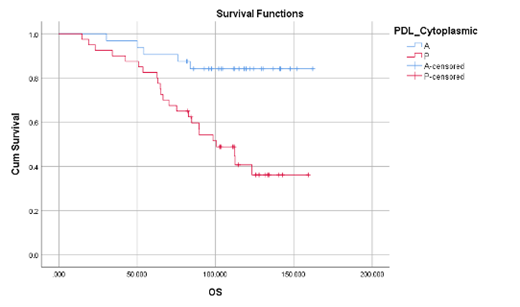Abstract
Background:
Hodgkin Lymphoma (HL) is a unique disease entity both in its pathology and the young patient population that it primarily affects. Several meta-analyses have demonstrated that high PD-L1 expression levels are correlated with adverse clinical and pathologic features. Objectives: The aim of this study is to evaluate the correlation between the expression of PD-L1 and clinicopathological features, as well as the prognostic significance of PD-L1 expression with regard to interim PET response in relapsing / refractory pediatric HL. Methods: We measured the expression of PD-1/PD-L1 in the baseline diagnostic samples of children with relapsing/ refractory classical HL. The results were correlated with the pathological subtypes as well as the clinical outcome. Results: Of the 88 included patients, 77% had advanced stage HL. PD-1 expression was detected in 50% of cases, whereas PD-L1 (membranous) was expressed by tumor cells in 60% of the cases, and strongly expressed in 16% of cases. Notably, PD-L1 (cytoplasmic) was detected in 55% of the cases. There was a significant differences in the expression levels of PDL-1 between the different pathological subtypes (p = 0.006). OS of patients with PD-L1expression (Cytoplasmic) was 83% vs 91% in patients with absent expression (P=0.001). There was no prognostic significance of PD-L1 expression with regard to PET response (p=0.31). Conclusion: Although PD-L1 expressions did not show statistically significance with well-established prognostic factors, our preliminary data indicate that pathological subtypes and cytoplasmic expression of PD-L1 may have a prognostic implication on survival in pediatric HL.
No relevant conflicts of interest to declare.


This feature is available to Subscribers Only
Sign In or Create an Account Close Modal